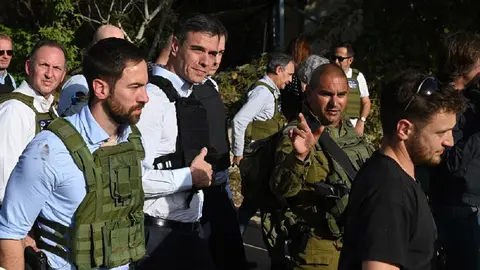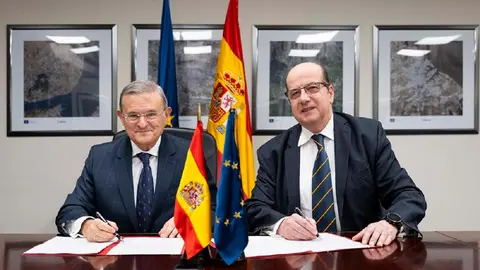How to mobilise the Armed Forces in dribs and drabs for political gain
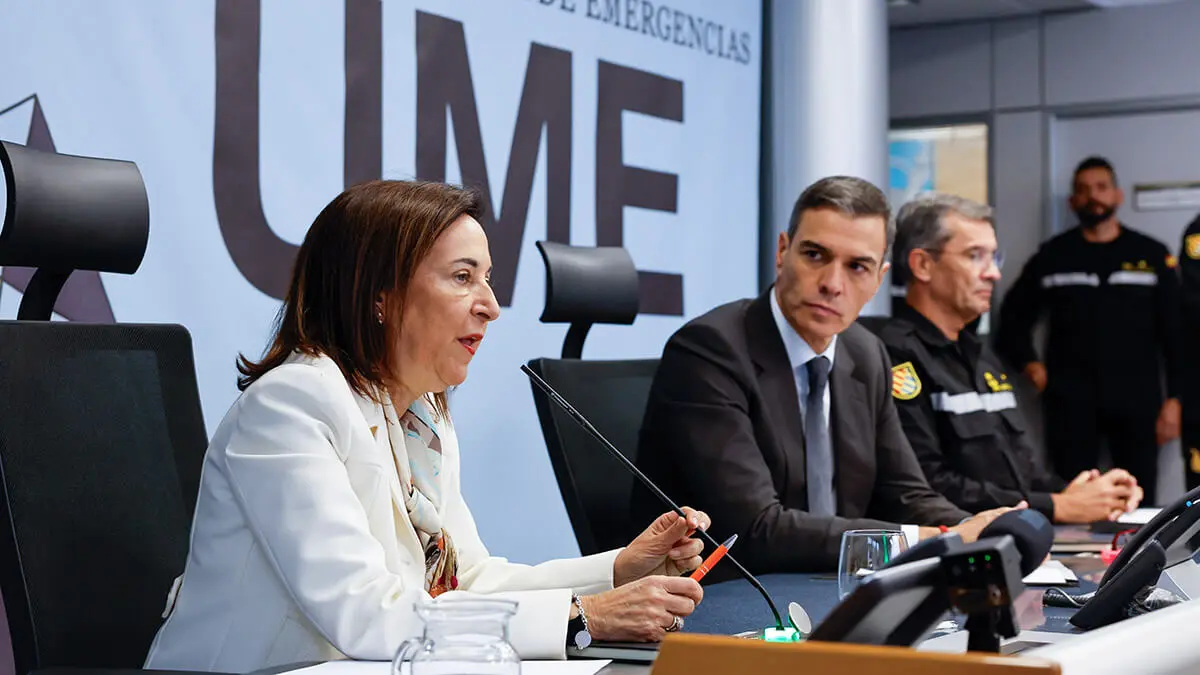
One person who has caught my attention in this regard is the Minister of Defence, Margarita Robles, who was responsible for justifying the initial lukewarm reaction of the Sánchez government to the devastation caused by the floods that devastated many villages south of Valencia on the afternoon of Tuesday 29 October.
From the early hours of the following morning, both Minister Robles and Air General Loreto Gutiérrez Hurtado, the director of the Department of National Security of the Presidency of the Government (DSN), were already aware of the real scale of the disaster.
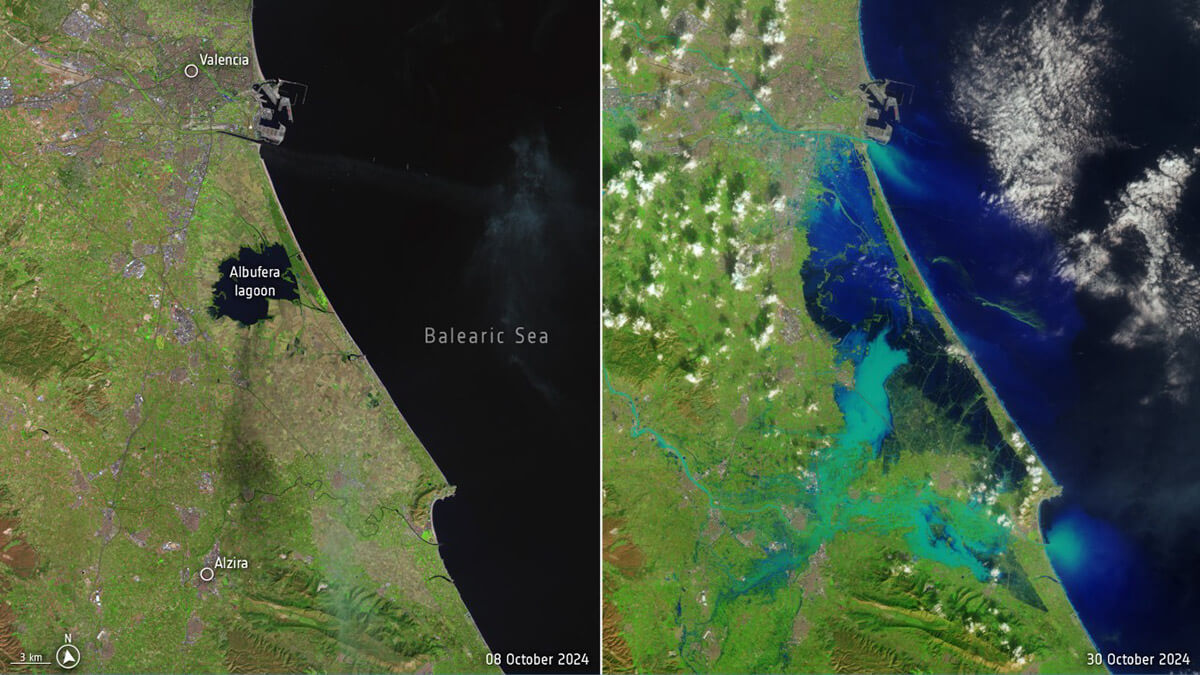
Both women were briefed by their chiefs of staff and had the opportunity to see and read the first intelligence reports extracted from photographs taken by the European visible, infrared and radar observation satellites of Copernicus, the constellation of environmental security satellites, NASA's LandSat-8 and the Spanish radar technology satellite Paz.
As the hours passed, both also learned the details provided by the photographs taken at lower altitudes by the drones and helicopters of the Guardia Civil, the National Police, the Air and Space Army and the Army, which were flying over the devastated areas, flooded by water or devastated by the typhoons that accompanied the Dana.
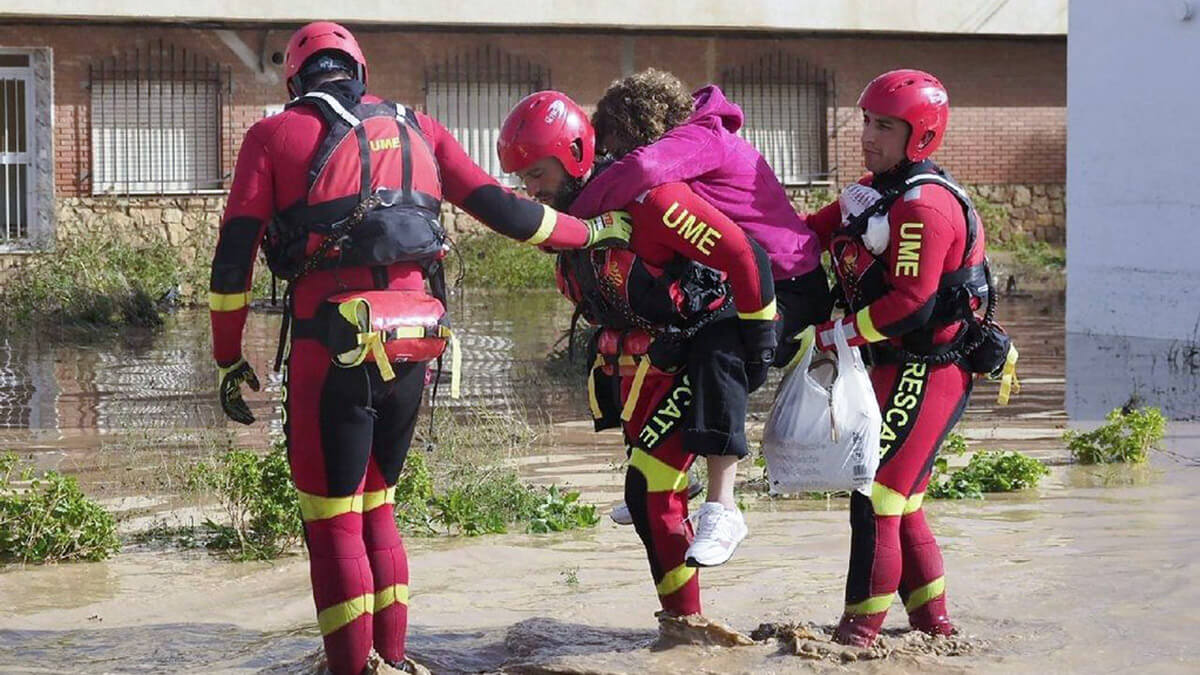
A cornered UME chief
Once the President of the Government was informed and aware of the true extent of the debacle - with data from the first death toll, the huge number of missing people and the great destruction of infrastructures and private properties - Sánchez decreed an initial aid operation to help the most affected towns, including Alacuas, Aldaia, Alfafar, Algemesí, Alginet, Beniparrell, Catarroja, Chiva, Massanassa, Paiporta, Picaña, Requena, Sedaví, Torrent, Utiel...
Once the first contingent of emergency aid from the UME has been activated, Minister Robles consciously corners the head of the UME, Lieutenant General Javier Marcos, and sets herself up as the sole protagonist to attend to the media. But the hours go by, one day, another day, and the demands for increased support do not materialise.
Journalists are eager to see a face or hear an authoritative voice to tell how the human and material resources that the Sánchez government has sent to help the nearly 450,000 people affected are evolving. However, given the impossibility of gaining access to General Marcos or any other high-ranking military commander due to an express - but unwritten - prohibition by Margarita Robles, radio and television reporters have no choice but to go and queue up in front of Minister Robles.
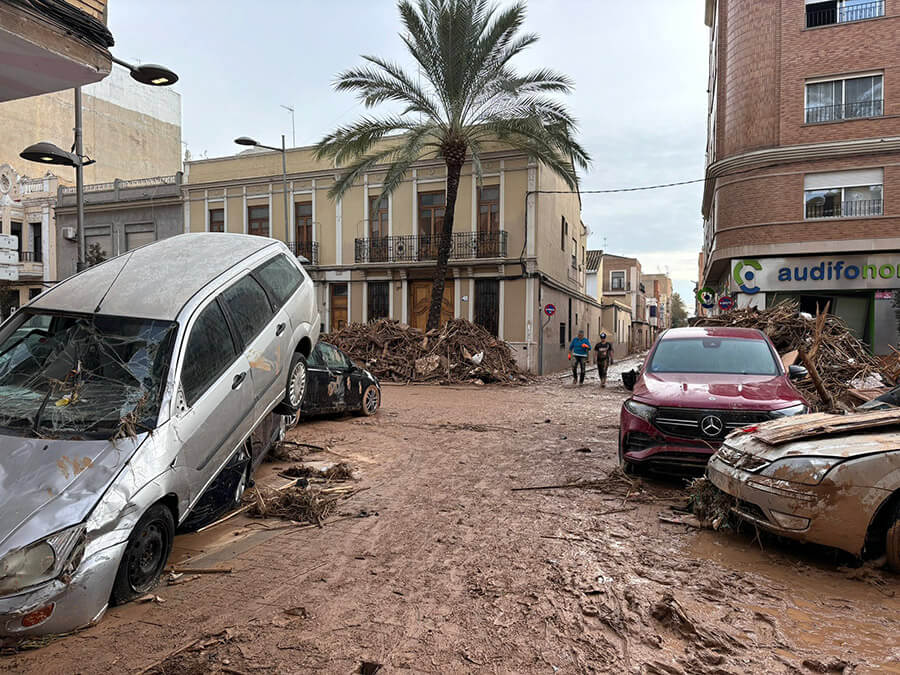
From her spacious office on the fourth floor of number 109 Paseo de la Castellana in Madrid, the magistrate, all by herself, during the first two days of the devastating floods, attends Cadena SER, Telecinco news, TVE, La Sexta, Onda Cero and the media who want to know about the lives saved and the work carried out by the members of the UME in Valencia.
What the minister explains to the television cameras and the microphones of the radio stations is a rehash of what the aforementioned head of the UME and the Chief of Defence Staff, Admiral Teodoro López Calderón, who provides her with the information he receives from the head of the Operations Command, Lieutenant General José Antonio Agüero, tell her. All of them have nearly 40 years of service, extensive experience in planning, know their job well and are experienced in the deployment and execution of complex missions in Afghanistan, Bosnia-Herzegovina, Iraq... But it doesn't matter.
With her usual self-assurance, Margarita talks about the efforts and tasks undertaken by the UME, the Army, the Marines and the Air Force ground troops that are being incorporated. What appears to be her autumn image campaign runs until Saturday, 2 November, when President Sánchez snatches the lead role from her. On that day, the supreme leader stages an institutional declaration - which means no questions from journalists - in which he announces that ‘the Valencian authorities know what needs to be done and, if they do not have sufficient resources to do it... they should ask for them’.
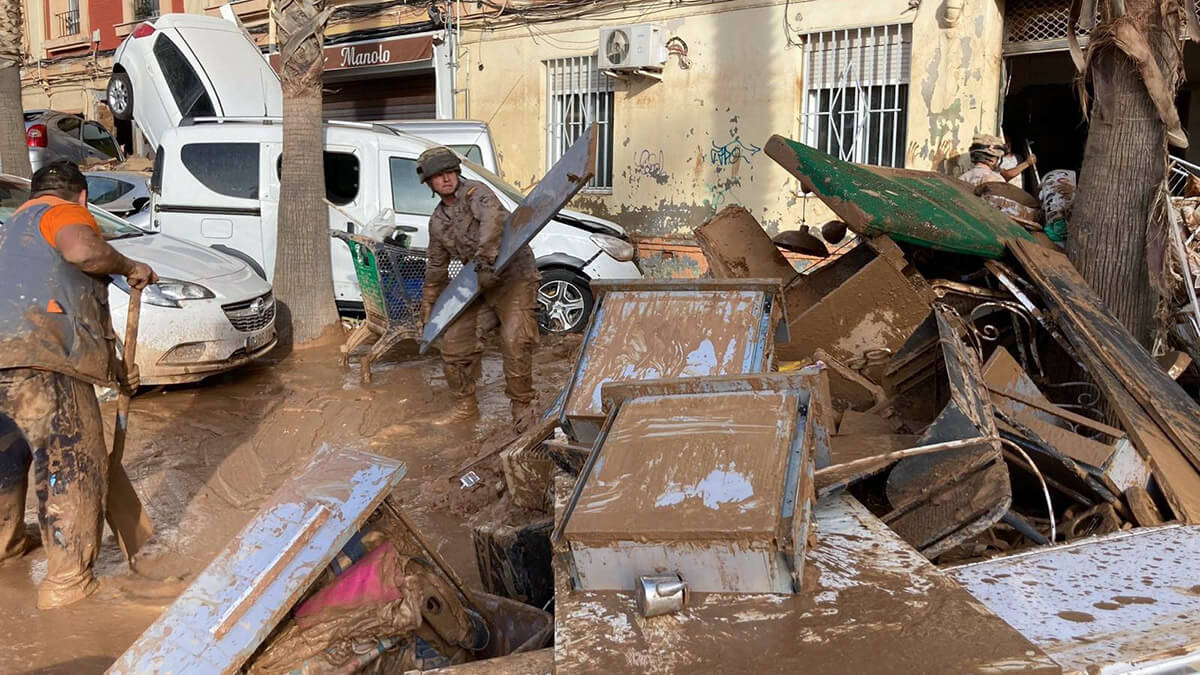
Five days that have turned into 500 years
The retired generals I have spoken to tell me of the ‘profound pain and astonishment’ they have felt listening to the clamour of the people on radio and television who, day after day, at least until the early hours of Sunday, 3 November, ask ‘where are the soldiers’. They do not know that the EMU is made up exclusively of military personnel. What they are really clamouring for are people in uniform who can bring order, know what needs to be done and provide the appropriate resources to tackle a mammoth task that the EMU alone cannot handle.
A veteran general with a lot of experience in disaster relief talks to me about ‘the shame’ he feels about the fact that the Zaragoza Pontoneros regiment had not been mobilised immediately, ‘which after the UME should be in the area, to set up its deployable bridges, rehabilitate interrupted land communications, use its heavy machinery to remove earth, remove wrecked cars and whatever else is needed’.
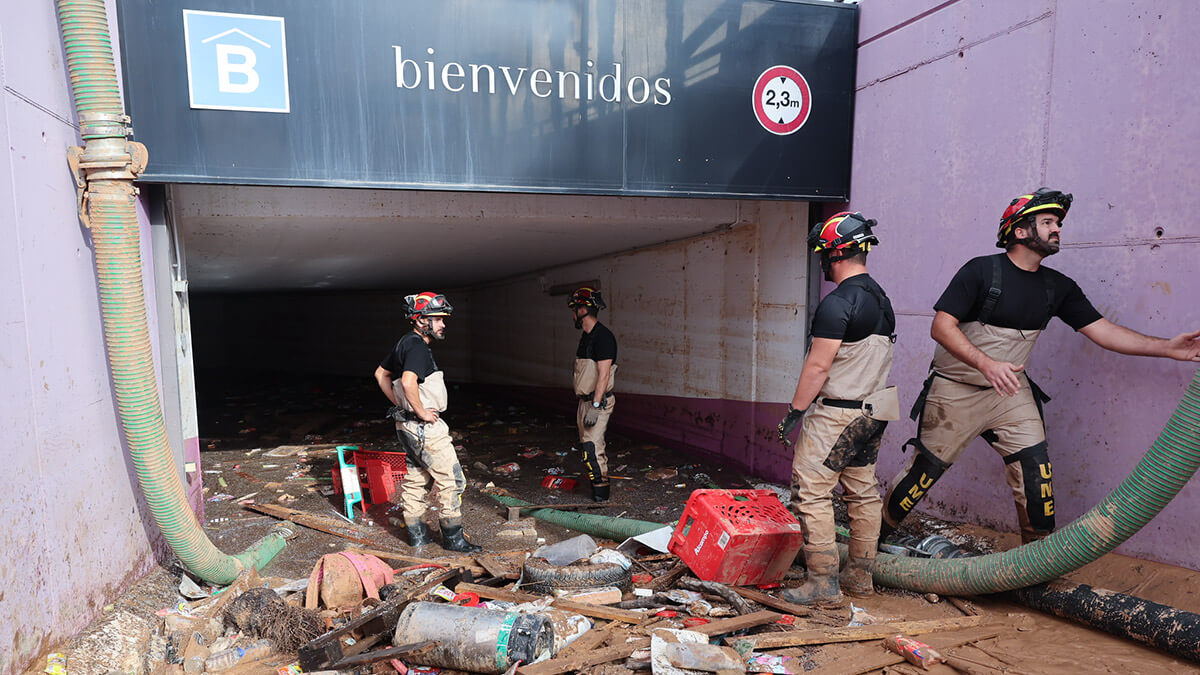
The Pontoneros... y Especialidades de Ingenieros regiment only needs six hours to mobilise and another six hours to move in stages along the motorway linking the capital of the Ebro with the capital of the Turia. Pontoneros have electricians, crane operators, divers, drivers and a long list of specialists with the capacity to raise bridges, provide electricity with their powerful generators, set up support installations and help to rescue bodies sunk in water and mud.
The UME has a total of some 3,000 troops. About a thousand were deployed within hours of the floods to mitigate a tragedy of such magnitude. But it has taken the government five long days to deliver the military and police force needed to respond adequately to the calamity.
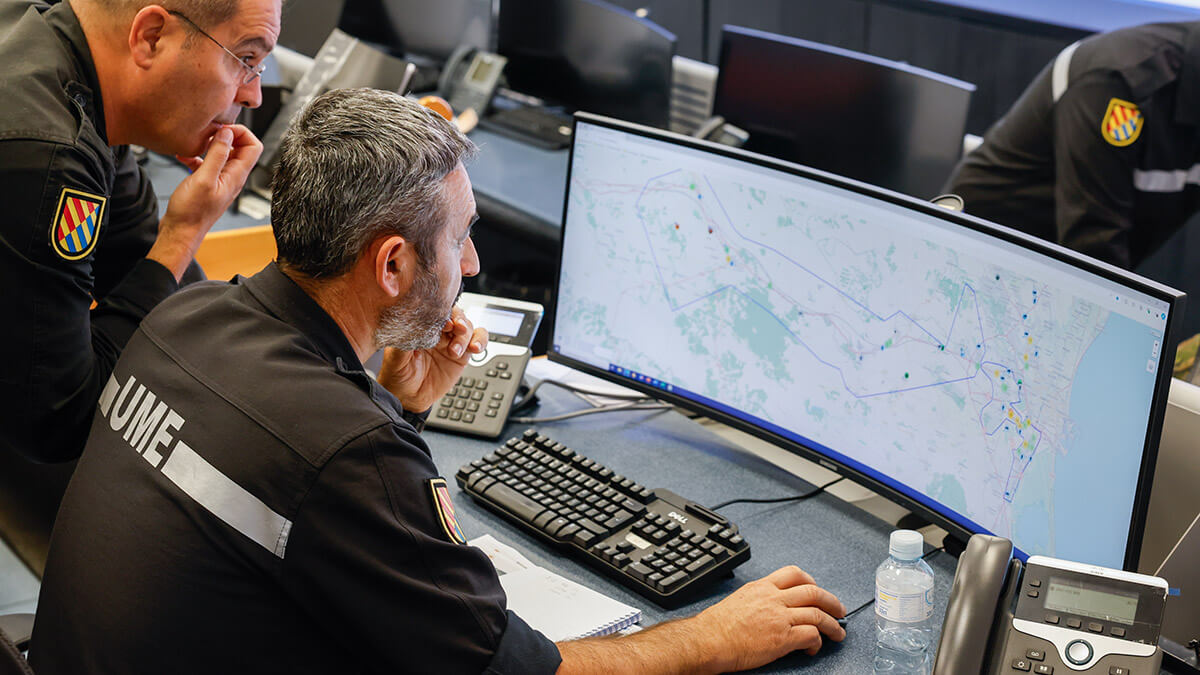
President Sánchez also does not consider the tragedy to be serious enough to activate the level 3 emergency level provided for in the Civil Protection Law, which entails the government setting up a single command to take control of the situation. The supreme leader has ruled this out ‘for the moment’, apparently leaving the Government of the Generalitat of Valencia with a free hand. But the situation could be reversed in the coming days or weeks.
It is possible that the head of government is waiting to decree a level 3 emergency ‘once he has his back covered’, I am told. It would be after seeing most of the bodies of the countless missing people emerge and he receives confirmation that the thousands of police, civil guards and military personnel he has sent to Valencia in the last 24 hours are already working at full capacity.
He would then take control of the rehabilitation of the towns in the south of Valencia, with a view to being able to put Science Minister Diana Morant - former mayor of Gandía, a town not affected by the floods - in charge of the presidency of the Generalitat in the next regional elections. This is a possibility that should not be ruled out.


